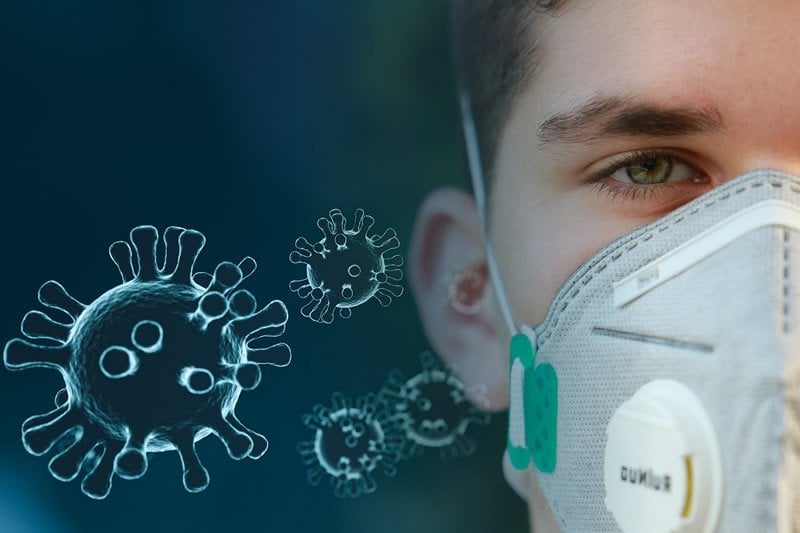Summary: User data from a new COVID-19 symptom tracking app reveals a loss of taste and smell are the strongest predictors of a positive coronavirus diagnosis. Using the data, researchers have developed a model to identify which combination of symptoms together could best predict COVID-19 infection in individuals.
Source: King’s College London
The latest analysis of data from the COVID Symptom Tracker app suggests losing your sense of taste and smell may be the best way to tell whether you have COVID-19.
26% of the 1.5 million app users between 24-29 March 2020 reported one or more symptoms through the app. Of these, 1,702 reported having been tested for COVID-19, with 579 positive results and 1,123 negative results.
The data analysed from the app shows that 59% of COVID-19 positive patients reported loss of smell and taste, compared with only 18% of those who tested negative for the disease. These results were much stronger in predicting a positive COVID-19 diagnosis than self-reported fever.
Using all the data collected, the King’s research team behind the app, alongside ZOE data scientists, developed a model to identify which combination of symptoms together could predict COVID-19 cases.
The model features a combination of loss of smell and taste, fever, persistent cough, fatigue, diarrhoea, abdominal pain and loss of appetite, in which the strongest predictor is loss of smell and taste.
When applied to the 400,000+ individuals reporting symptoms who had not yet had a COVID-19 test, the team found that almost 13% of them are likely to be infected by the virus – meaning an extra 50,000 individuals are likely to have as yet unconfirmed COVID-19 infections.
The app, which was developed by a King’s College London team in association with the Guy’s and St Thomas’ NHS Foundation Trust, NIHR Biomedical Research Centre and a healthcare start-up ZOE Global LTD, asks users to log their symptoms (or lack thereof) daily.

The aim is to help researchers understand the spread and progression of COVID-19. By 31 March 2020, more than 1.8 million users in the UK have signed up to help by logging their symptoms every day.
Lead researcher Professor Tim Spector said: “When combined with other symptoms, people with loss of smell and taste appear to be 3 times more likely to have contracted COVID-19 according to our data, and should therefore self-isolate for seven days to reduce the spread of the disease.
“This urgent research is only possible thanks to the 1.8 million citizen scientists logging their symptoms every day. This also gives us an evolving map of the UK of where symptoms are occurring two to three weeks before a strain on the NHS, which is why it’s vital to continue logging your health and symptoms, even when you feel completely healthy, and encourage others to use the app.” Professor Tim Spector, lead researcher said.
You can find FAQs for the COVID Symptom Tracker app here: https://twinsuk.ac.uk/our-research/covid-19/covid-19-symptom-tracker-app-faqs/
Source:
King’s College London
Media Contacts:
Tim Spector – King’s College London
Image Source:
The image is in the public domain.






